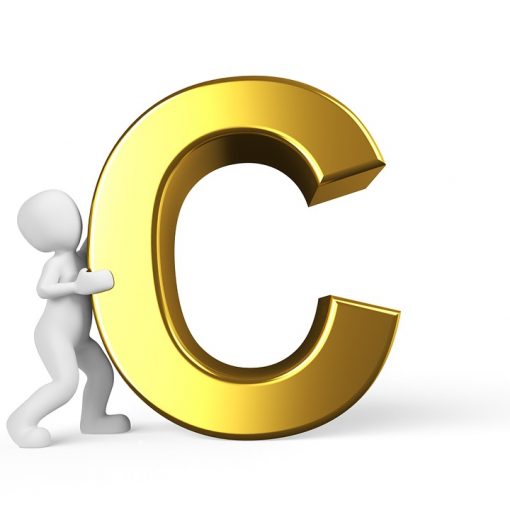By Roslyn Lash

Student loan debt in the US has reached a record high of $1.2 trillion dollars. Other than mortgages, student loan debt surpasses all other types of debt. In 2016 the average US student graduated with $37,000 in student loan debt. This is alarming for potential homebuyers. If you are a recent graduate around 21 years old, you’re probably not interested in owning property. Millennials are interested in homeownership and you’ll soon be interested too! Years ago I worked as a Homeownership Coordinator helping clients become homeowners. The questions that I heard most were related to credit, and how to qualify for a mortgage while tackling student loans. As interest rates hover around 4.00%, buying a home is becoming more attractive.
You may be wondering “How can I qualify for a mortgage?, What will they look at when determining eligibility? and How much money will I need?”. After all, your student loan payment alone may be $300-$400 dollars. If you have a $400 student loan payment along with a car payment and perhaps credit card bills, it will be more difficult to qualify. Lenders look at your debt, income, and savings when determining eligibility. We’ll go through each criterion to increase your chances of hearing “you’re approved”!
You must have enough income
Income is any money that you receive on a regular basis. It includes the money that you earn from working, and all extra monies. Typically income includes the money from your job, child support, alimony, social security, dividends, and commission. You may get money that you don’t even consider. For example, you might earn $200 per month for babysitting. In this situation, you should consistently deposit these funds into your bank account. There must be a paper-trail for your income and this deposit creates proof of your earnings. Also, your employer may be asked to verify your employment. Don’t be offended by the thoroughness of the lending process. I’ve had clients that were insulted by the amount of paperwork required such as income taxes, pay stubs, bank statements, w-2’s, verifications and reference letters, etc. I’d say “if you were loaning someone $200,000, wouldn’t you want documentation?”.
Minimize your debt
Some people think that their rental amount will also be their qualifying mortgage amount. They’ll say “if I haven’t had any trouble paying $1,200 in rent, I’ll automatically qualify for a $1,200 mortgage”. Though the logic is understandable, it isn’t true. Your income must justify all housing related expenses including taxes, insurances and homeownership dues, if applicable. Lenders want to be sure that you can afford to pay the mortgage as well as your other bills. All of your debts will be viewed. You must have enough money to live comfortably. You still must pay for food, utilities, credit card payments as well as your other recurring bills.
Emphasis will be placed on your debt-to-income (DTI) ratio. This should be below 43%. However, if you are applying for downpayment assistance, it’s best to keep this number under 40%. A lower number is best, of course.
Before you apply for a mortgage
As mentioned above, the maximum debt-to-income ratio is 43%. This number shows how much of your income is used toward your debts. If your student loan payments are high, then you’ll have a higher DTI ratio. Higher student loans can eat away at your budget and limit the amount of home that you can afford. If your student loans are high you may be forced to buy a less expensive home. If this is your situation, you’ll want to take steps before you begin hunting for a mortgage. You should take the following actions at least six months before you begin mortgage shopping:
- Visit AnnualCreditReport.com to check your credit report. If there are any discrepancies contact the credit bureau and dispute the error.
- Start paying off your credit cards. Begin with the cards with the smaller balances. Once these are paid, tackle the cards with the highest interest rates. Powerpay.org provides a strategy way to eliminate your bills.
- Consolidate your student loans: Be sure to only combine similar loans. Do not combine a subsidized loan with an unsubsidized loan. Each of the government backed loans (subsidized and unsubsidized) offer special benefits and they should not be consolidated. Also, you should only combine private loans with private loans. When combining loans consider the interest rate of each loan. It wouldn’t make sense to combine a loan with an interest of 3.00% with one that has an interest rate of 7.00%.
- If you have government loans, check to see if there are payment plans which fit into your budget. Some plans may allow you to reduce your monthly payment without substantially increasing the term. This option is especially important if you are delinquent because it could make it easier to qualify for a mortgage loan. By refinancing those loans you can not only get them paid off quickly, but you can also saving money. Also, be mindful of deferred loans. A deferred loan may help you qualify initially; but, once the payments become due it could become a hardship. Therefore, the goal is to pay off your student loans as soon as possible.
You must have some cash
You will need to have money for a downpayment once you’re sure of your eligibility. You will be required to contribute an amount ranging from 3.00% to 20% of the sales price. For those that qualify, some government entities offer downpayment assistance. Whether you contribute your own funds or receive assistance, you will be required to have money left over after closing in case there’s an emergency.
Even if you have student loans, homeownership is possible. Sacrifices may be necessary and adjustments could be required. You may have to streamline your budget, or modify your home search. But, once you’ve clearly separated your needs from your wants, it will become easier to acquire the American Dream!




